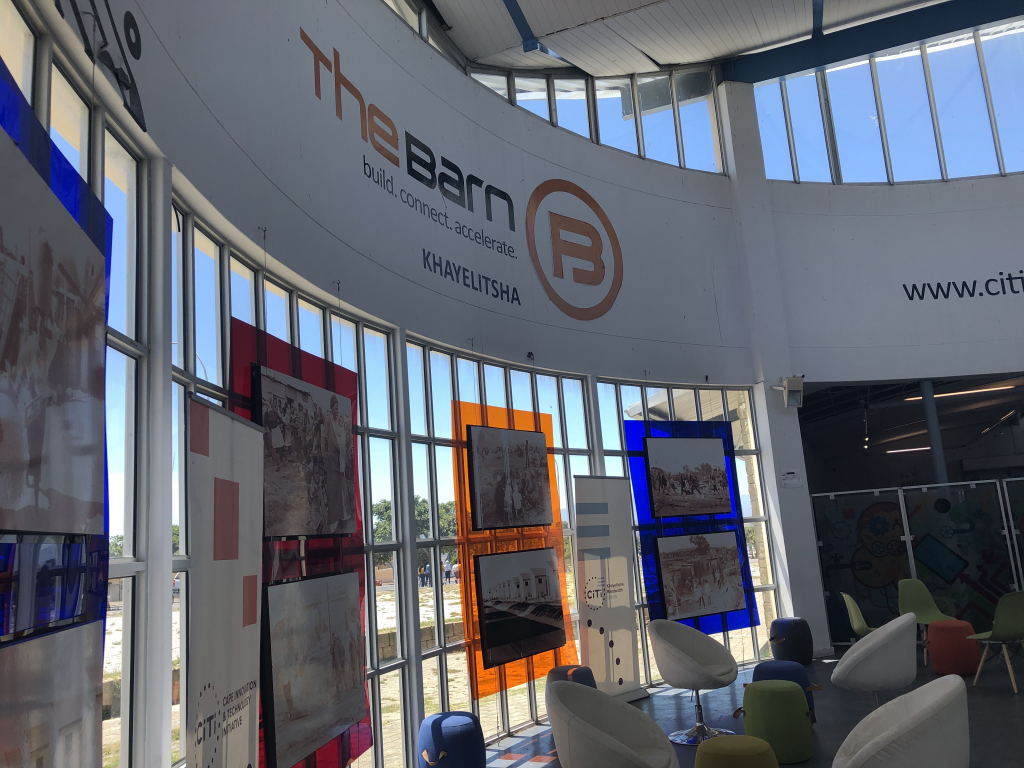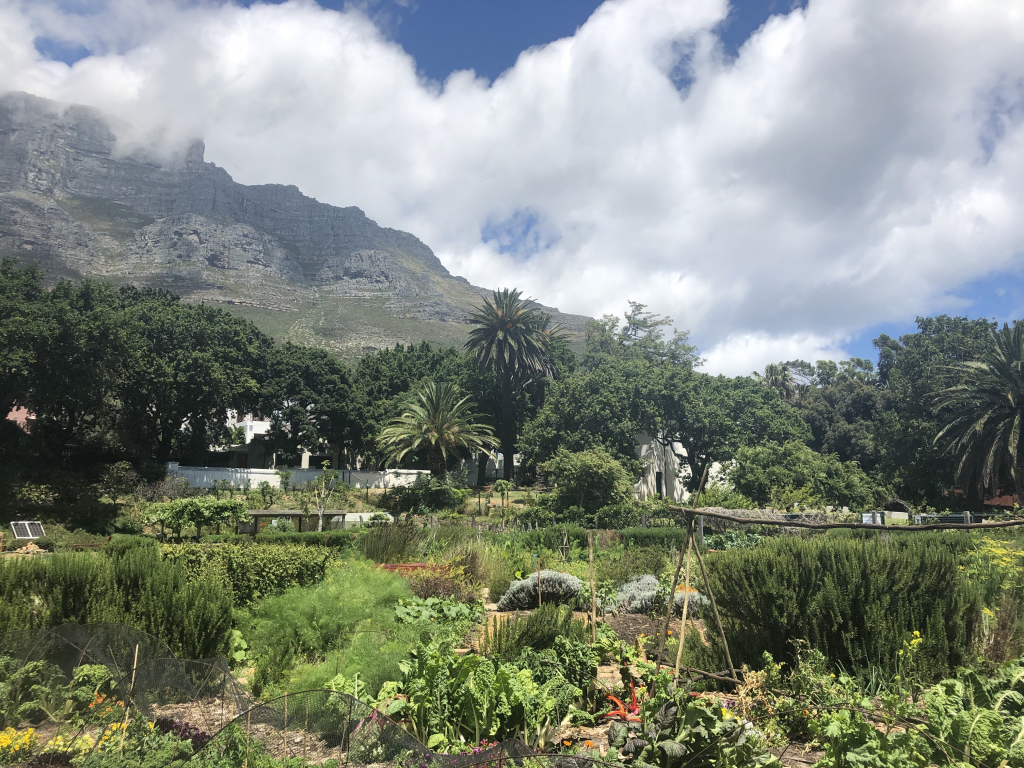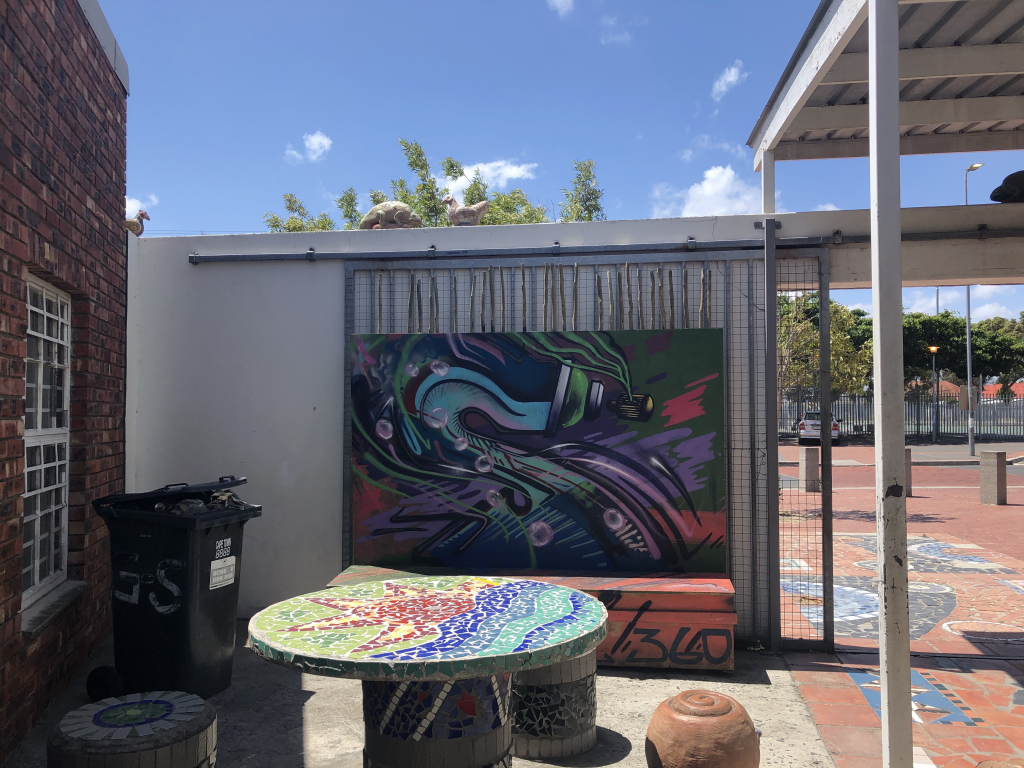My Research Stay in Cape Town, South Africa: Marie Sophie Röder
Making profit for a purpose, being a conscious businessperson, leveraging economic activities to achieve greater good for the broader society – high hopes and expectations are attached to social entrepreneurship. This is especially the case where governments struggle to effectively tackle socio-economic problems and where NGOs lack the necessary funds to expand their activities. From upcycling and urban greening to innovative educational programmes and sustainable tourism ventures, the causes supported by social entrepreneurs and the business models they adopt are manifold. But what sparks the idea of setting up a social enterprise and how do aspiring founders of social businesses put their aim into practice? What kind of resources do they need and on whose support can they rely?

My time as a YEEES Master Scholar started with all these questions in mind. It is evident that such an issue can hardly be approached in a quantitative way, based on numbers and statistics. It requires the stories of those people who went through the social entrepreneurial journey themselves and having conversations with them. Keen to find out what role networks play for the recognition and realisation of social entrepreneurial ideas, the YEEES Master Grant offered me exactly what I needed – the opportunity to travel to South Africa, meet relevant people, conduct interviews and literally map the networks of social entrepreneurs, while listening to their stories and visiting their working environment.
I started my data collection based on the theoretical assumption that entrepreneurial activities are embedded in the social environment and that networks can give aspiring founders access to essential social and economic resources. Mark Granovetter and other scientists arguing in his tradition especially point out the importance of so-called weak ties in a network – distant acquaintances, less closely connected contacts who are said to be especially important to gain specific, exclusive information that makes people recognise opportunities to venture into business. Interestingly, the stories that my interview partners kindly shared with me opened my eyes to a slightly different reality and various interesting insights, of which I want to share some in this blog post.

First of all, I observed that despite the quite diverse personal backgrounds of my interview partners, their wish to make a positive impact was usually sparked early in their lives and is based on a strong awareness of the differences that exist in the world. Many told stories that show how they developed certain individual characteristics from personal circumstances they experienced during their younger years, which can be understood as the ‘breeding ground’ for their pursuit of a social entrepreneurial idea later in their lives: While growing up in rather privileged circumstances can sharpen the senses for the contrasts in the country, others now tackle social ills that they have personally experienced. Moreover, my interview partners generally proved to have a strong entrepreneurial mind-set. Their role models being people from their close personal sphere just as well as renowned, successful businesspeople, they take the commercial side of their ventures quite seriously. They aim to grow their ventures, to scale their impact and some even aspire to change the way business is done more generally. This highlights that social entrepreneurship is more than charity and that business career, private life and personal passion can be closely connected.
Building on their personal history and individual characteristics, I found that usually an experience the founders had in interaction with people they had a strong bond with was key for their recognition of a social business idea. In contrast to what the theory suggests, distant contacts were usually less relevant than strongly tied friends and relatives who sparked an idea and provided emotional as well as some material support. To most founders, it was especially important to have those close contacts help them discover their own potential, provide encouragement and feedback to refine first ideas. Mainly local, personal, face-to-face contacts seem to matter and social entrepreneurship support organisations particularly gained importance at a later stage when the founders tried to realise their social business idea. Interestingly, several of the interviewees explained that they only learned about the term ‘social entrepreneurship’ from these organisations – in some cases only after having recognised an idea for a social business without even knowing that such a concept exists. The term is not very well known yet, which for some of the social entrepreneurs meant that they encountered a lack of understanding, with some people even trying to discourage them from pursing such a career path.

I heard detailed life stories and visited the most different places; I learned about the influence of literature, travelling, volunteering, education and professional experience; I met people with small personal networks who purposefully kept their business idea to themselves and founders with larger circles of social contacts; I heard about some intermediaries who brokered important contacts, about a few fleeting, random encounters that changed the lives of the social entrepreneurs and about co-founders who took on key functions – essentially, the above is only a brief glimpse into my master’s thesis. However, the reason why I chose to especially point out these aspects is because they show how personal and commercial aspects become one in the concept of social entrepreneurship. It left me deeply inspired how much these people, who I had the pleasure to speak to, have achieved. How dedicated they are to keep creating a positive impact for as many people as possible, how closely their personal lives are interwoven with their social entrepreneurial career, how they successfully worked their way through challenges and manage to see the opportunities even in adverse circumstances. The hardship that South Africa is facing right now in the midst of the Covid-19 pandemic, creates a completely new challenge for social entrepreneurs; yet social entrepreneurship has the potential to play a vital role in the socio-economic recovery of the country after the crisis.
Generally, an increased awareness and appreciation of social entrepreneurship is needed in order to ensure that those who consider taking this pathway receive more understanding and support and to motivate more people to consider social entrepreneurship as a career option. Bringing people in touch with successful local role models and illustrating that social enterprises can be economically viable in addition to their positive impact would contribute to this aim as well. Furthermore, in times of social distancing, a virtual support infrastructure is more important than ever to allow digital socializing with and within the social entrepreneurial community.
Through my research I got to know inspiring personalities and dedicated support organisations. Therefore, I want to use this opportunity to express my warmest thanks to the founders of Fix Forward, Greenpop, Grow Recruitment, Hands of Honour, Houtkappers, Indibano, I Scream and Red, Organic Matters, SeeSawDo, Sexy Socks, Siviwe Tours, The Hope Exchange, Township Roots, TozArt, Thinking Empire for Kids, YWaste and 18 Gangster Museum as well as to the team of Oribi Village – A Movement of Changemakers, the organizers of the Cape Town Entrepreneur Social Monthly Networking Event and of the African Entrepreneurs Summit – Entrepreneurship 5.0 for taking the time for long, insightful conversations about their fantastic work, for which I wish them continued success.